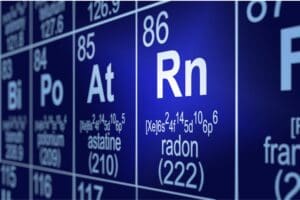New Home Buyers Should Have Radon Inspection and Testing
When buying a home in New Jersey, Radon Inspection and Testing should be a priority. If you have lived in a home for a while, Radon Testing is a good idea when you haven’t done it before. Radon is an invisible, odorless radioactive gas that naturally forms when uranium in soil, rock and water breaks down. Radon is a health threat, being the second leading cause of lung cancer in the U.S., after smoking, and the leading cause of lung cancer among non-smokers.
for a while, Radon Testing is a good idea when you haven’t done it before. Radon is an invisible, odorless radioactive gas that naturally forms when uranium in soil, rock and water breaks down. Radon is a health threat, being the second leading cause of lung cancer in the U.S., after smoking, and the leading cause of lung cancer among non-smokers.
Rooney Home Inspections offers Radon Inspections to homeowners in North Central New Jersey either as part of a total Home Inspection, or separately.
How Does Radon Enter Your Home?
Radon enters homes through cracks in the foundation, gaps around pipes, and any other openings. Since it is a gas, Radon can seep through the smallest cracks and accumulate in enclosed spaces. Radon is usually found in basements or crawl spaces. Every home has a different radon level, even if they are next to each other. The only way to be sure if your home has high Radon levels is to test for it.
How Does Testing Work?
Radon test kits can be purchased from hardware stores or online. Although do-it-yourself test kits provide a very quick result, a quick result does not guarantee an accurate reading and besides the level of Radon can change. For the most accurate, unbiased report about the level of Radon in your home, you should have a professional test for it. Radon is measured in picocuries per liter of air (pCi/L). The EPA recommends action if your home’s level is 4 pCi/L or higher. Based upon the findings of a Radon test, you can decide on the next step.
If your home has high Radon levels, there are ways to reduce them. The most common is a vent pipe system and fan, known as a Radon Reduction System. This method pulls Radon from beneath your home and vents it to the outside. Sealing cracks in floors and walls can also reduce the level of Radon, but should be used in combination with other methods for best results. These Radon reduction systems should be installed by a Radon mitigation contractor to ensure they will be effective.
Radon In New Jersey
Radon is found everywhere in New Jersey, but the northwest part of the state is particularly known for having high levels. Given these facts, it’s essential for homeowners and home buyers to test for Radon. This is a health and safety issue you should be aware of.
Debunking Radon Myths
There have been myths regarding Radon that have circulated and they can lead to confusion.
For example:
1. “My neighbor’s home tested low for Radon so mine will too”
This is not true, Radon levels vary from house to house, even if they are right next to each other.
2. “Radon testing is difficult and expensive”
Radon testing is easy and affordable.
3. “Homes without basements don’t have Radon problems.”
Radon can enter any home, even houses without basements can have high Radon levels.
Professional Testing
The only way to know if Radon is present in your home is to test for it, so a professional Radon Inspection and Test is the best option. Rooney Home Inspections always recommends Radon Testing when performing a Home Inspection. For a comprehensive professional Home Inspection including a Radon Inspection, call us at 973-996-8257 and schedule an appointment.
